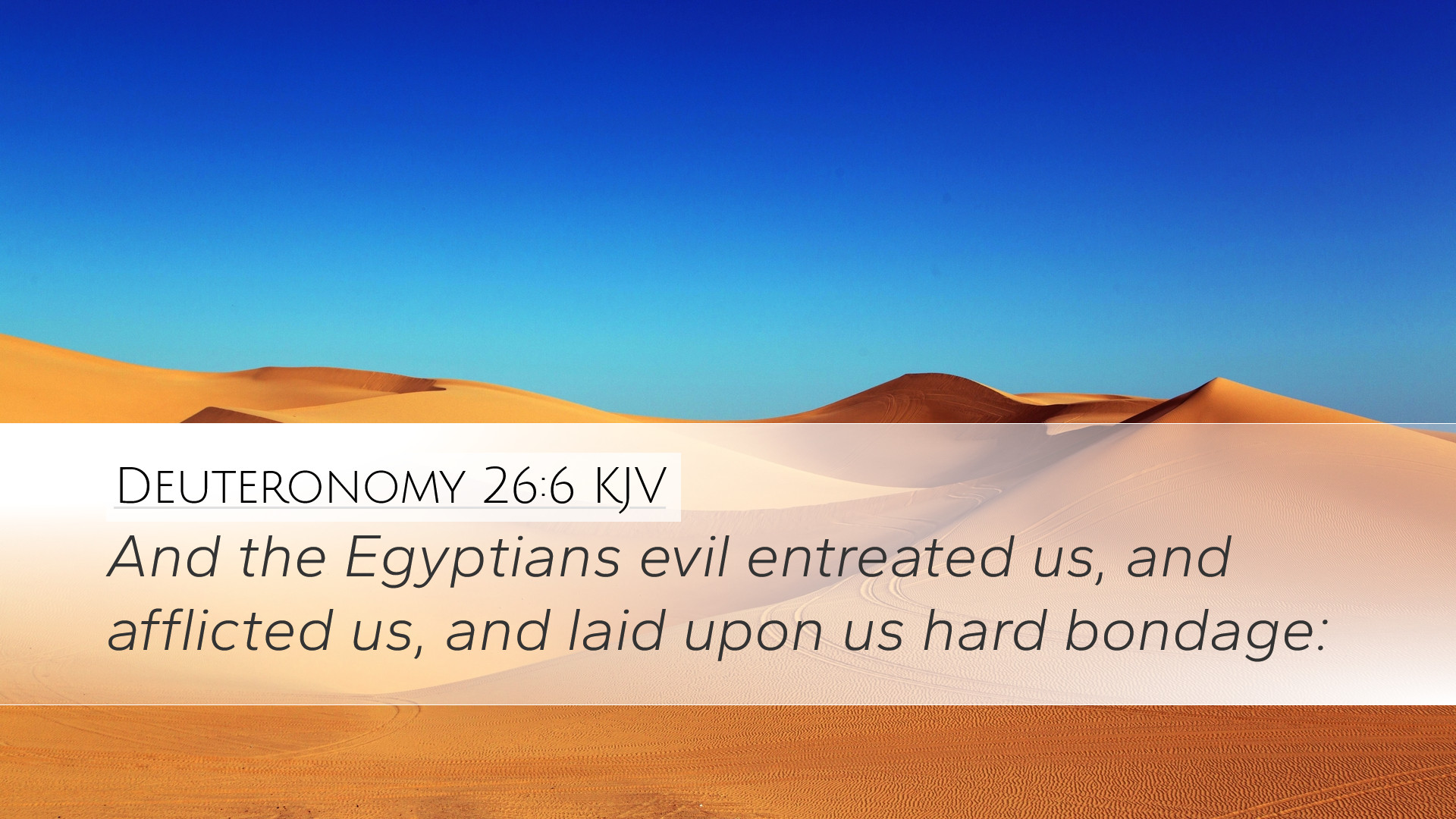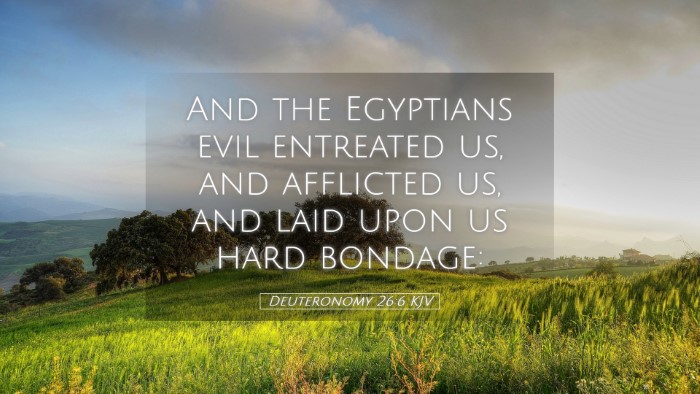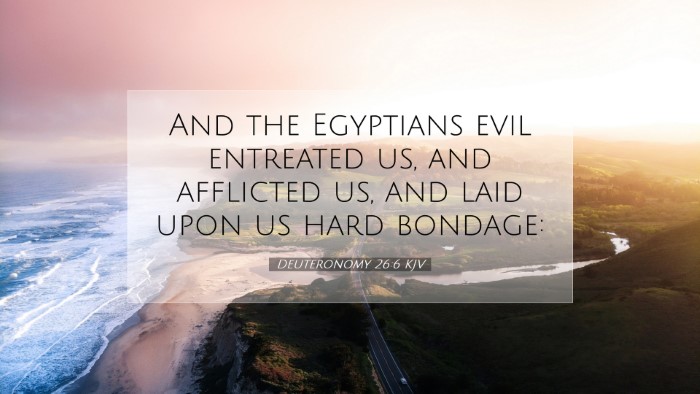Commentary on Deuteronomy 26:6
Bible Verse: "And the Egyptians evil entreated us, and afflicted us, and laid upon us hard bondage."
Introduction
The verse selected from Deuteronomy 26:6 serves as a pointed reminder of the harsh realities of bondage faced by the Israelites in Egypt. This commentary synthesizes the insights from notable public domain commentators, including Matthew Henry, Albert Barnes, and Adam Clarke. Their perspectives offer a layered understanding of the text that is valuable for pastors, theologians, and Bible scholars alike.
Contextual Overview
This passage occurs within a section of Deuteronomy where Moses instructs the Israelites on how to celebrate the feast of firstfruits and proclaim God's deliverance. The acknowledgment of past afflictions is critical as it situates God’s deliverance within the narrative of their identity and worship. For scholars, understanding this context enriches the theological implications of remembrance and thanksgiving in Israel’s identity.
Historical Context
Each commentator emphasizes the historical backdrop of the Exodus narrative. The Israelites were subjected to severe oppression under Egyptian forces. Matthew Henry elaborates on the notion of 'evil entreated' and 'afflicted' as terms reflecting not only the physical affliction but a spiritual degradation as they were distanced from their identity as God's chosen people.
Albert Barnes notes that the 'hard bondage' is indicative of both the physical labor imposed on Hebrew slaves and the emotional degradation of their collective spirit. For students and pastors, this reflects a duality in the nature of suffering that has implications for understanding oppression in a broader biblical and social context.
Theological Reflections
Affliction and Identity
Matthew Henry suggests that the remembrance of their afflictions serves a dual purpose: as a warning against pride and as an encouragement. Recognizing their past suffering reminds the people of their need for God’s mercy and providential care. This interpretation fosters a greater humility and reliance on God.
Albert Barnes points out that while the remembrance of trials may seem burdensome, it plays an essential role in forming their identity. By recounting their suffering, the Israelites can appreciate the depth of their liberation and the goodness of God. This reflection can inspire modern believers to not shy away from examining their trials, understanding them not as rifts in faith but as circumstances through which God's grace is magnified.
Divine Deliverance
From the perspective of Adam Clarke, this verse pivots toward the theme of deliverance. He underscores that God’s action in their past serves to invigorate their worship and encourage current faithfulness. Clarke offers insights into the significance of worship defined by remembrance. For theologians, this highlights a continuous thread of faith living through acknowledgment of past grace, which can be woven into contemporary worship practices.
Practical Applications
- Memory and Worship: This passage encourages congregations to integrate remembrances of God’s faithfulness in their worship practices. Formal acknowledgment of past troubles can foster gratitude and deepen a community’s reliance on God.
- Addressing Modern Afflictions: The commentary reminds modern readers that suffering is not unique to biblical times. Pastors can encourage congregants to share their struggles—personal or collective—creating a communal atmosphere that mirrors the biblical narrative of reliance and redemption.
- Spiritual Growth through Challenges: Students and theologians can engage in discussions about personal and societal afflictions, exploring how these experiences shape their understanding of God and their faith journey.
Conclusion
In summary, Deuteronomy 26:6 offers profound theological insights that reflect on Israel's past and illuminate God’s providential care. As expressed through the lenses of Matthew Henry, Albert Barnes, and Adam Clarke, this verse encapsulates the interplay of affliction, identity, and divine deliverance. For pastors, students, and scholars, the call to remember serves as a powerful reminder of faith's connection to both personal and collective histories of suffering and redemption.


